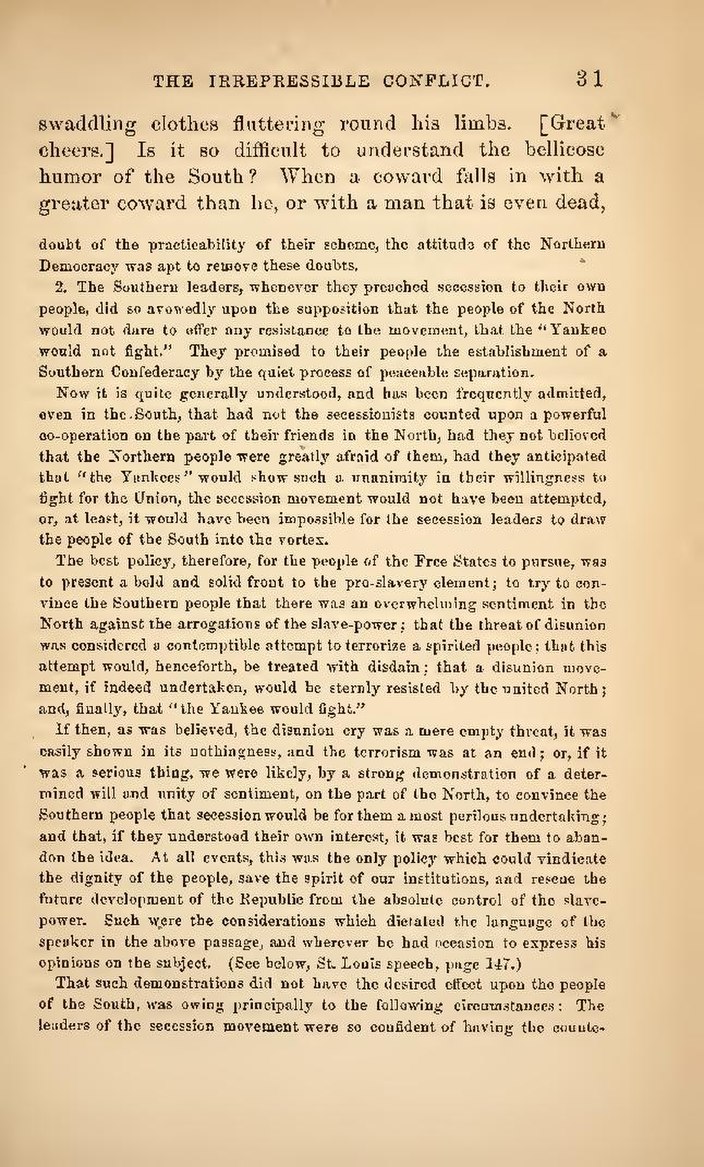swaddling clothes fluttering round his limbs. [Great cheers.] Is it so difficult to understand the bellicose humor of the South? When a coward falls in with a greater coward than he, or with a man that is even dead,
doubt of the practicability of their scheme, the attitude of the Northern Democracy was apt to remove these doubts.
2. The Southern leaders, whenever they preached secession to their own people, did so avowedly upon the supposition that the people of the North would not dare to offer any resistance to the movement, that the “Yankee would not fight.” They promised to their people the establishment of a Southern Confederacy by the quiet process of peaceable separation.
Now it is quite generally understood, and has been frequently admitted,even in the South, that had not the secessionists counted upon a powerful co-operation on the part of their friends in the North, had they not believed that the Northern people were greatly afraid of them, had they anticipated that “the Yankees” would show such a unanimity in their willingness to fight for the Union, the secession movement would not have been attempted, or, at least, it would have been impossible for the secession leaders to draw the people of the South into the vortex.
The best policy, therefore, for the people of the Free States to pursue, was to present a bold and solid front to the pro-slavery element; to try to convince the Southern people that there was an overwhelming sentiment in the North against the arrogations of the slave-power; that the threat of disunion was considered a contemptible attempt to terrorize a spirited people; that this attempt would, henceforth, be treated with disdain; that a disunion movement, if indeed undertaken, would be sternly resisted by the united North; and, finally, that “the Yankee would fight.”
If then, as was believed, the disunion cry was a mere empty threat, it was easily shown in its nothingness, and the terrorism was at an end; or, if it was a serious thing, we were likely, by a strong demonstration of a determined will and unity of sentiment, on the part of the North, to convince the Southern people that secession would be for them a most perilous undertaking; and that, if they understood their own interest, it was best for them to abandon the idea. At all events, this was the only policy which could vindicate the dignity of the people, save the spirit of our institutions, and rescue the future development of the Republic from the absolute control of the slave-power. Such were the considerations which dictated the language of the speaker in the above passage, and wherever he had occasion to express his opinions on the subject. (See below, St. Louis speech The Doom of Slavery, p. 147.)
That such demonstrations did not have the desired effect upon the people of the South, was owing principally to the following circumstances: The leaders of the secession movement were so confident of having the counte-
